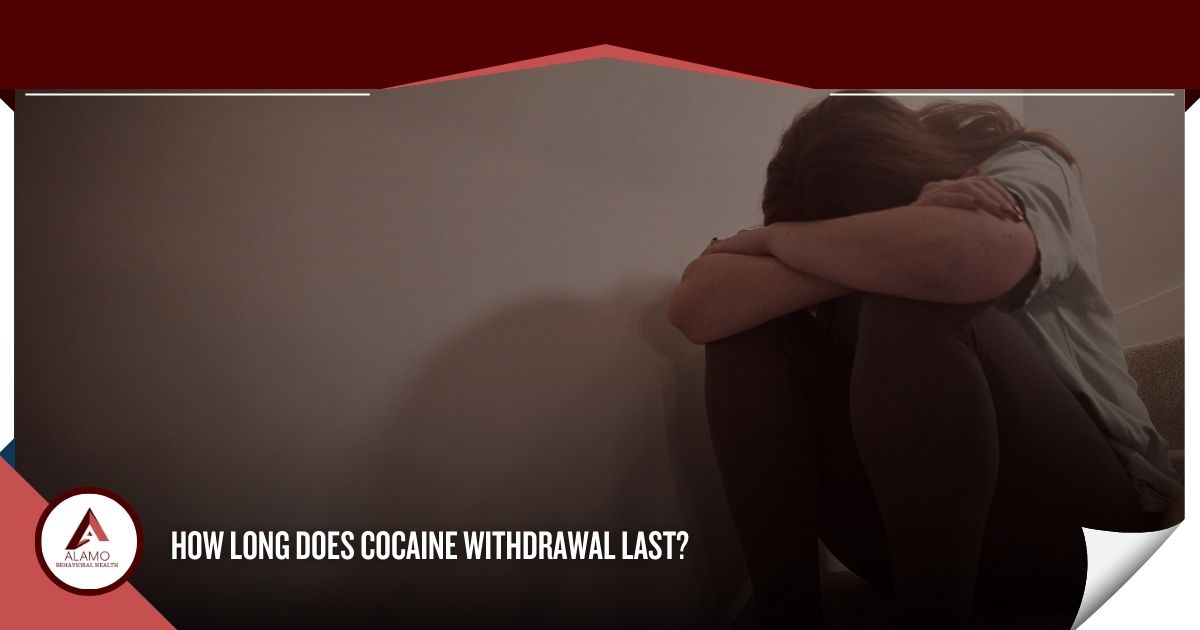
Cocaine is a stimulant known for its intense euphoric effects and the addiction potential that comes with its use. While the initial euphoric rush can be enticing, the aftermath can be devastating. For people who become dependent on cocaine, withdrawal symptoms can be a major obstacle they face on the road to recovery.
Cocaine withdrawal is a complex process affecting a person mentally and physically. When you have a better understanding of the symptoms and duration of cocaine withdrawal, it can allow you to know what to expect before you begin treatment.
You’re empowered to navigate treatment and recovery with more resilience and determination when you know the nature of withdrawal.
What Are the Effects of Cocaine?
Cocaine stimulates the central nervous system, and it comes from the coca plant leaves, which are native to South America. The refined form of cocaine we think of today is incredibly addictive and illegal.
When someone uses cocaine, it interferes with their neurotransmitters’ ability to function normally in the brain. It especially affects dopamine, part of the brain’s reward and pleasure pathway. Cocaine blocks dopamine reuptake, meaning it accumulates in the brain. This dopamine accumulation leads to euphoria, alertness, increased energy, and an enhanced sense of confidence.
There are different ways to use cocaine, including snorting, smoking or injecting it.
Cocaine’s euphoric effects are short-lived, lasting a few minutes up to an hour. After the high wears off, you might start to feel a crash, with fatigue, irritability and depression occurring.
Repeatedly using cocaine contributes to tolerance. When you’re tolerant, you need larger doses for the desired effects. That can then escalate to dependence and addiction.
Along with dependence and addiction, other serious effects of cocaine use can include heart complications, breathing and neurological problems, and psychiatric disorders.
Cocaine Dependence and Addiction
While they are related, dependence and addiction are distinct concepts.
Cocaine dependence refers to a physical reliance on the drug to function. If someone’s dependent on cocaine, their body’s adapted to its presence. They could have withdrawal symptoms if they stop using it. Dependence can occur as the body grows accustomed to the effects of cocaine, with regular or heavy use over time.
Cocaine addiction is defined as a compulsive pattern of use despite negative consequences. When you’re addicted to cocaine, it’s a diagnosable disease in which you can’t control cocaine cravings or use, and you continue using it despite knowing about the harmful effects. Cocaine addiction also causes you to prioritize the drug over other responsibilities and activities.
Addiction is a chronic condition affecting behavior and brain function, and it often worsens without appropriate treatment.
While it’s most common for dependence and addiction to co-occur, not everyone with cocaine dependence is addicted and vice versa. However, both addiction and dependence require professional treatment and intervention.
Symptoms of Cocaine Withdrawal
Cocaine withdrawal symptoms occur as your body reacts to the absence of the drug after regularly using it for a period. When someone repeatedly uses cocaine for some time, their brain adjusts its normal functioning to adapt to its presence. The adjustments can then disrupt neurotransmitter systems.
In particular, cocaine use artificially elevates dopamine levels in the brain. When you take the cocaine away, dopamine levels plummet, leading to symptoms like fatigue, low energy and depression. Dopamine dysregulation is a main driver of many cocaine withdrawal symptoms.
Prolonged cocaine use can lead to neuroadaptation, where the brain changes its structure and function, compensating for the drug’s presence. With cocaine removal, the adaptations can lead to rebound effects, like increased sensitivity to negative emotions and stress.
Cocaine also affects other neurotransmitters aside from dopamine, including norepinephrine and serotonin, causing symptoms like agitation, anxiety and sleep disturbances.
If you suddenly stop cocaine or reduce your use, your brain struggles to regain its balance without the drug being present. The imbalance can lead to both physical and psychological symptoms.
Other symptoms of cocaine withdrawal can include:
- Increased appetite
- Vivid dreams and nightmares
- Irritability
- Mood swings
- Physical discomforts like headaches, chills and muscle aches
- Intensive cocaine cravings
Not everyone experiences every cocaine withdrawal symptom, and their severity can vary.
Cocaine Withdrawal Timeline
The cocaine withdrawal timeline varies among individuals and is influenced by things like the severity of cocaine addiction, but a general timeline could include:
- Initial Crash: An initial crash may occur during the first few days. It’s usually within hours, but it might not start for a few days after you discontinue cocaine use. The phase includes intense fatigue, depression and irritability. It can also include cocaine cravings, increased appetite and trouble concentrating.
- Acute Withdrawal: People can experience acute cocaine withdrawal symptoms anywhere from 2-7 days after their last use. Symptoms may peak in intensity, including mental symptoms, physical discomfort and sleep disturbances.
- Subacute Withdrawal: From days 7-14 after the last cocaine use, many of the acute symptoms start to improve. Some people may experience lingering withdrawal symptoms, but they’re typically less intense.
- Early Recovery: From weeks 2-4 after the last use of cocaine, you may start to feel significantly better in terms of mood and energy levels, which is known as the early recovery phase. Your cravings may start to disappear, and your sleep patterns will normalize.
If you’re addicted to or dependent on cocaine, you need medical supervision to manage withdrawal and achieve recovery. Medical detoxification is often the best choice, and it’s also just known as a medical detox. In a medical detox for cocaine, you have supervision from medical professionals as you go through withdrawal.
There aren’t FDA-approved medicines specifically for cocaine withdrawal, but there are several treatments that can be used to manage individual symptoms. In a medical detox, you have 24/7 monitoring and support from trained healthcare professionals. They can quickly address medical issues or complications that might arise.
Medical detox is an initial step in the cocaine treatment process, preparing you for ongoing addiction treatment. Then, you might transition into a treatment program where you begin to address the underlying issues driving your addiction.
If you’d like to learn more about the cocaine withdrawal timeline or professional detox support, contact our team at Alamo Behavioral Health. We offer medically assisted detox and programs with residential treatment for a seamless transition to the next step on your treatment and recovery journey.



